15 Surprising Things You Should Never Flush
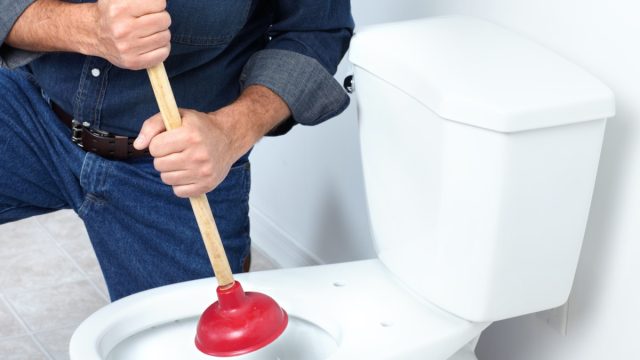
You probably don’t spend much time thinking about the functionality of your bathroom plumbing—until something goes wrong, that is. Unfortunately, in many homes, toilets become the de facto disposal method for practically any household item when the trash is full, often leading to serious plumbing problems along the way. If you want to avoid a costly mistake, find out which items plumbers say you should never flush down the toilet. And for more ways to sidestep a plumbing problem, check out these 13 Things You Should Never Pour Down the Drain.
1
Hair
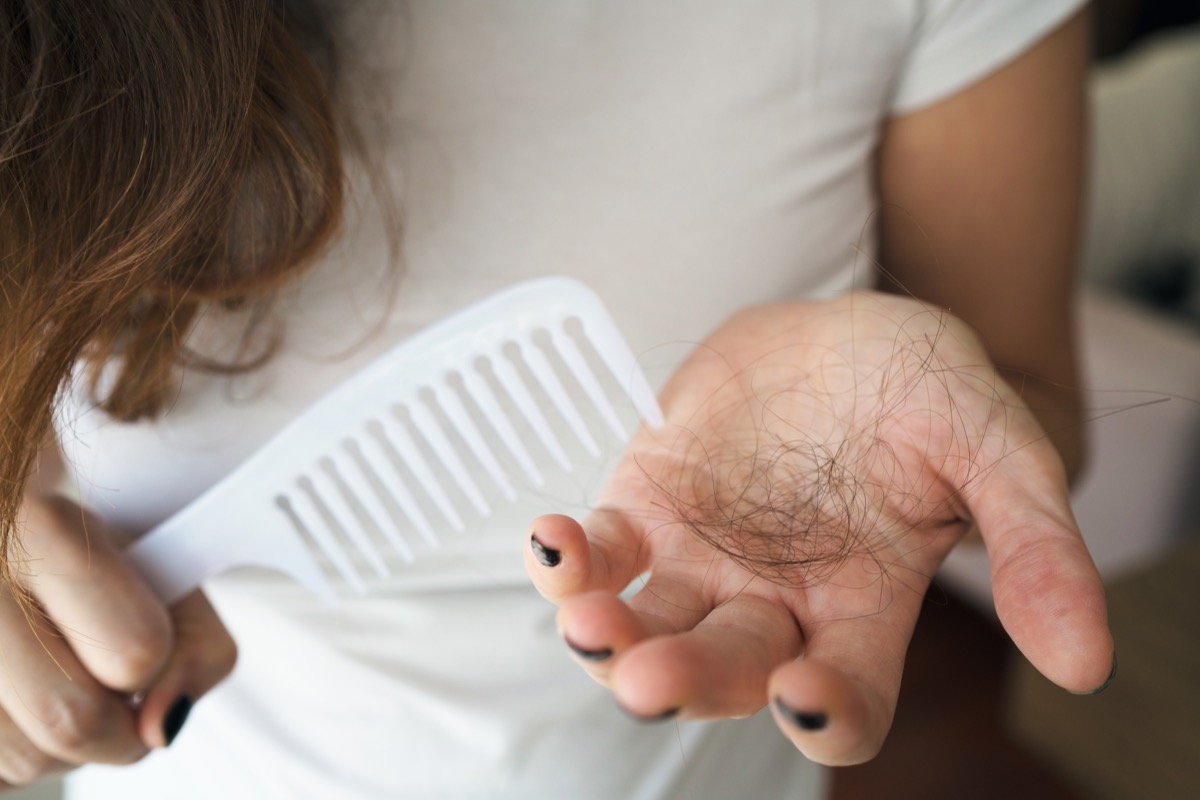
Trimming your beard or cleaning out your brush over the toilet could lead to an expensive plumbing issue before you know it. “Hair and trimmed beard don’t dissolve in water,” says certified plumber Stephany Smith of My Plumber. And it’s more than just a mild clog you’ll have to contend with if you make this a regular habit. Smith cautions that hair can “tangle around the inner toilet [parts] and form a massive ball of toilet obstructions.”
2
Soap
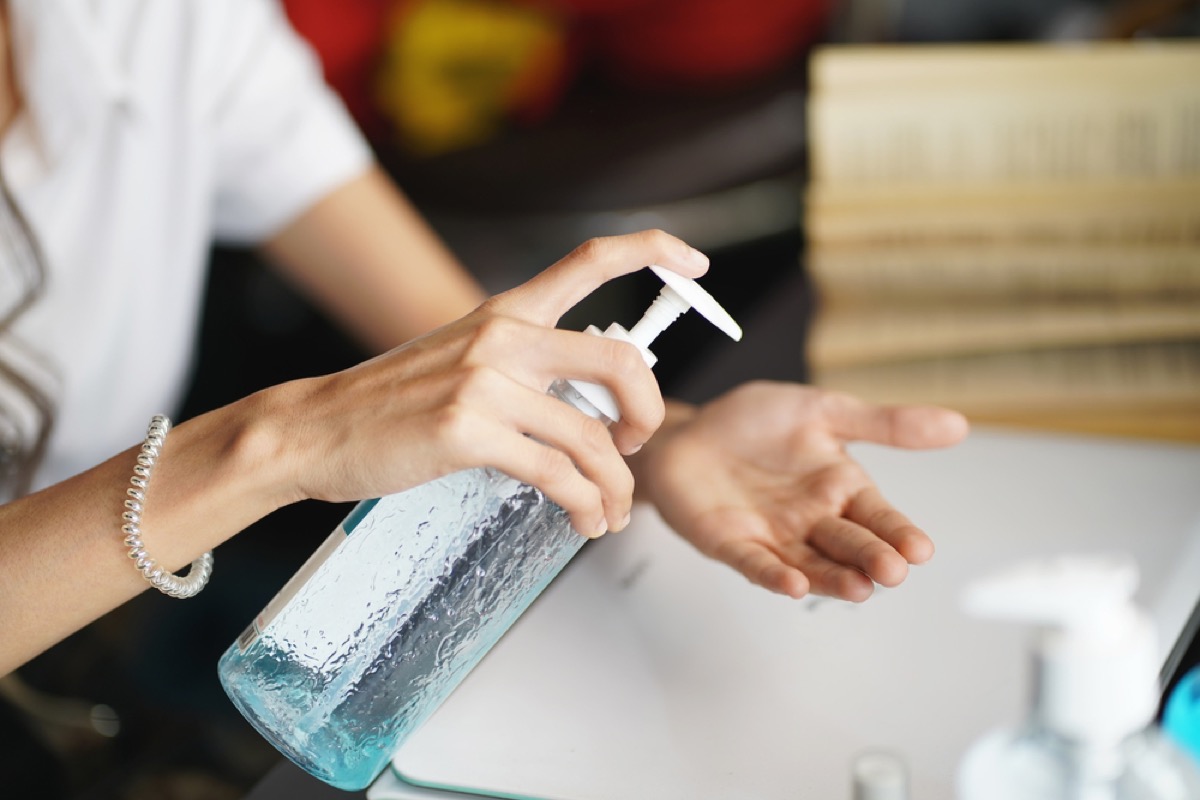
Soap may be just fine to rinse down your sink drain, but it’s a major mistake to flush it down your toilet.
“It’s a common misconception that a cleaning tablet or soap detergent can clean up your toilet,” Smith warns. She says that no soap should be used in either your toilet tank or bowl if you want to maintain its functionality. And for more mistakes you might be making with your pipes, check out 21 Ways You’re Damaging Your Home, According to Your Plumber.
3
Shampoo and conditioner
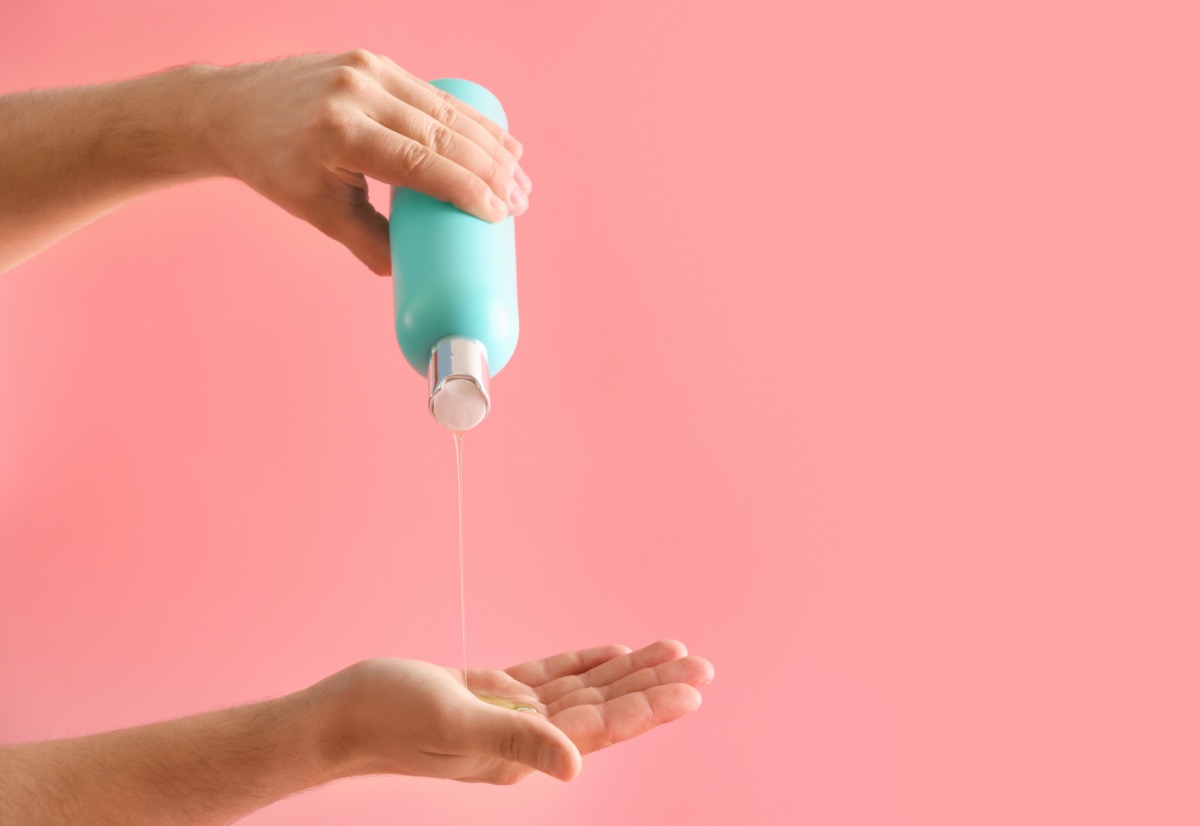
The same goes for shampoos and conditioners, Smith explains. “It’s a bad idea to spill your body washes, shampoos, or conditioners” into the toilet, she says. That’s because these products tend to contain essential oils and cocoa butter, which are particularly likely to clog your pipes.
4
Talcum powder
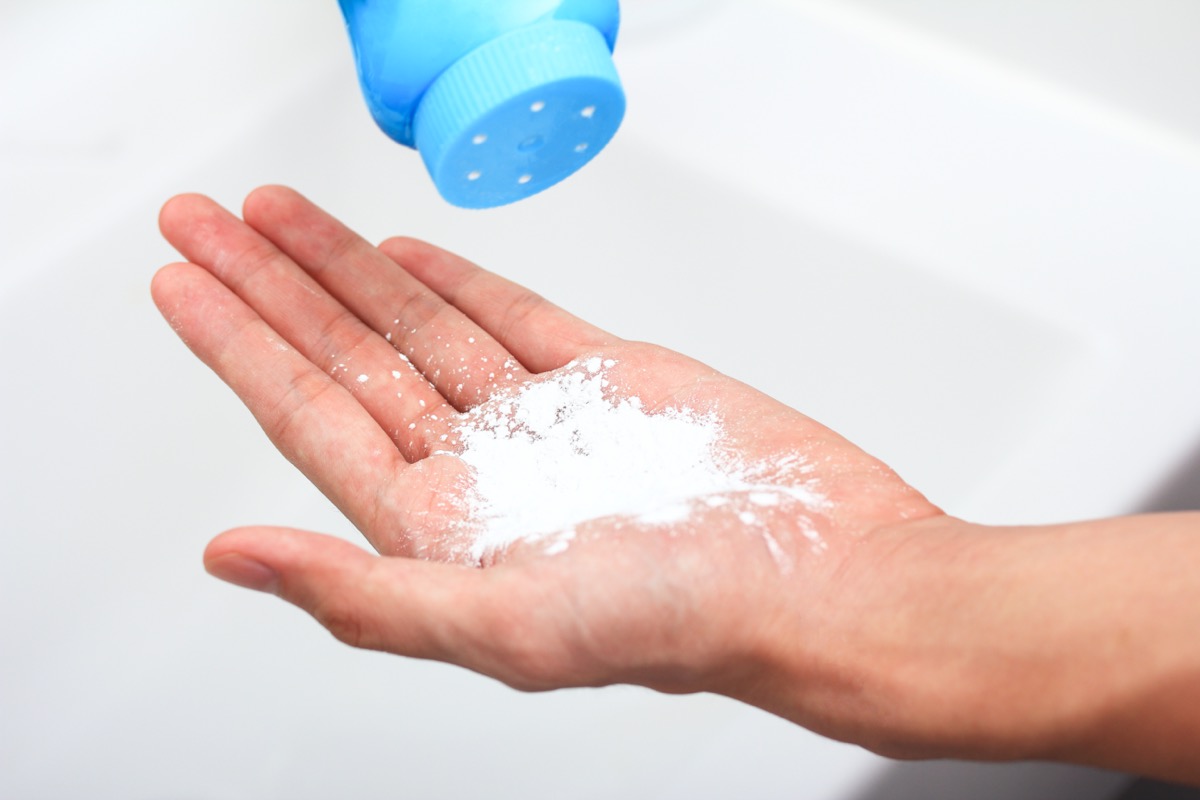
If you’re applying personal care products like talcum powder in the bathroom, make sure you’re doing so with the toilet lid closed.
Smith says that products like talc can “form a tangled of tumbleweed” within your plumbing system or leave residue on your pipes that can result in future clogs. And for more helpful info delivered to your inbox, sign up for our daily newsletter.
5
Medication

They may not clog your pipes, but flushing either prescription or OTC medications down your toilet can cause serious issues well beyond your pipes. “The ingredients in pharmaceuticals can pose dangers to your water supply,” explains Glenn Gallas, vice president of operations at Mr. Rooter, a Neighborly Company.
Instead, Gallas recommends returning any unused medication to your local pharmacy or contacting medication disposal programs in your area. And to avoid more mistakes like this, check out these 30 Surprising Things You Should Never Put in the Garbage.
6
Cotton swabs
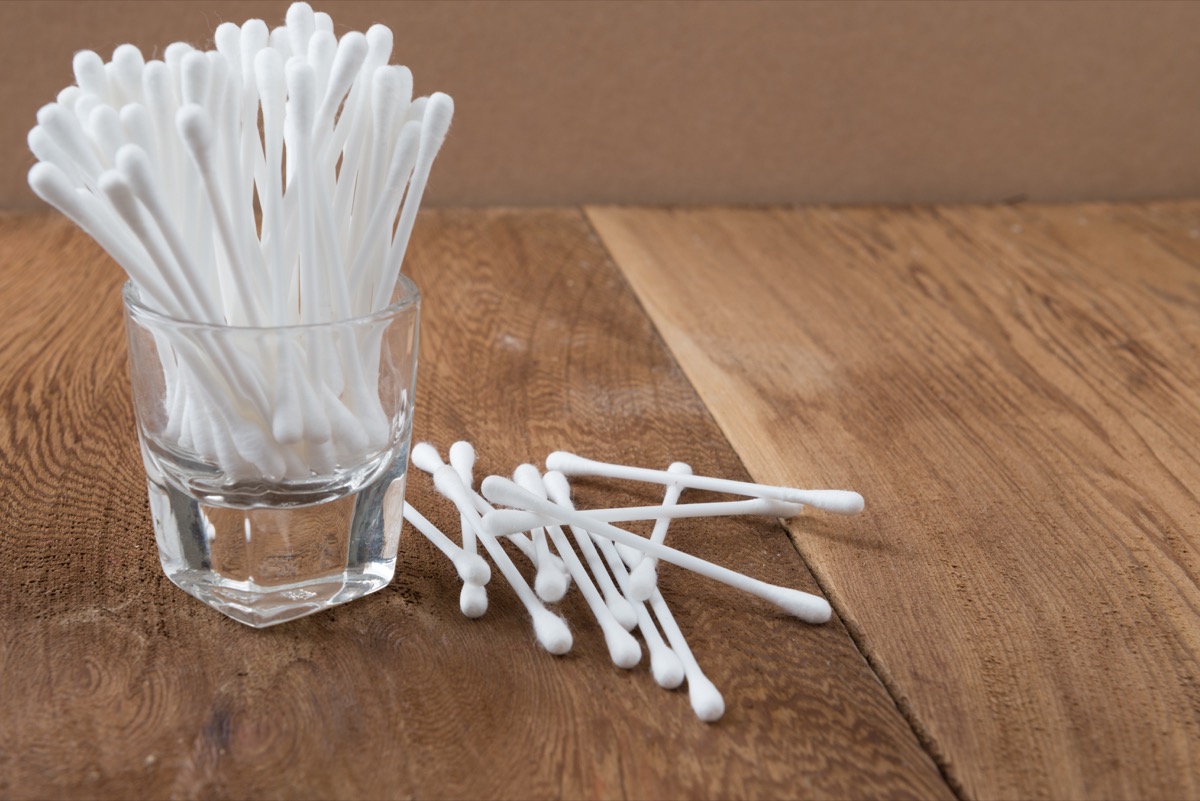
While many types of cotton and paper—the main components of most cotton swabs—are biodegradable, that doesn’t mean your plumbing system can handle having cotton swabs swimming in there. “The cotton in these items can easily snag and grab on just about anything,” says Gallas.
He adds that cotton swabs can even harm waste treatment machinery long after they’ve left your home plumbing system and often have to be manually removed by sewage plant workers.
7
Flushable wipes
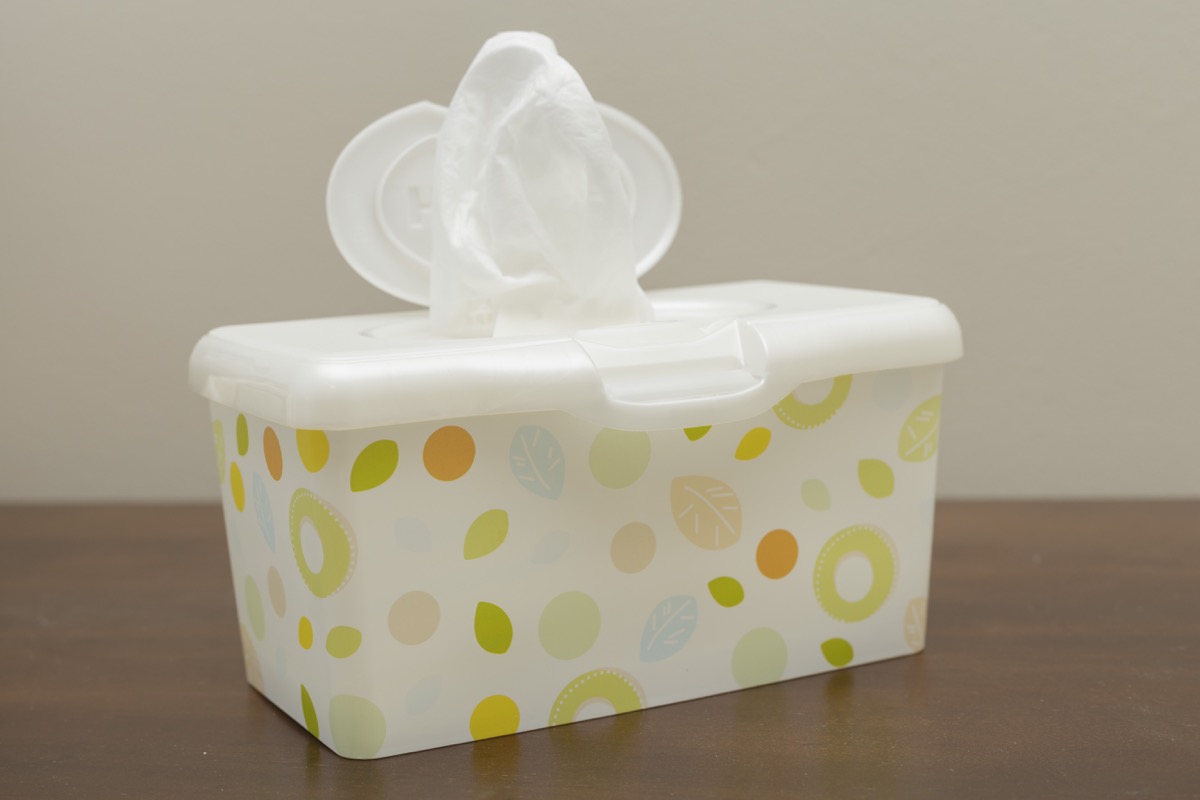
Just because that box of wipes says they’re flushable doesn’t mean you should actually dispose of them in the toilet.
“Though flushable wipes may degrade faster than ‘non-flushable’ wipes, they still don’t degrade fast enough,” explains Mark Dawson, chief operating officer at Benjamin Franklin Plumbing. When you do flush them, they “just sit in your toilet pipes, slowing everything down,” says Dawson.
8
Makeup wipes
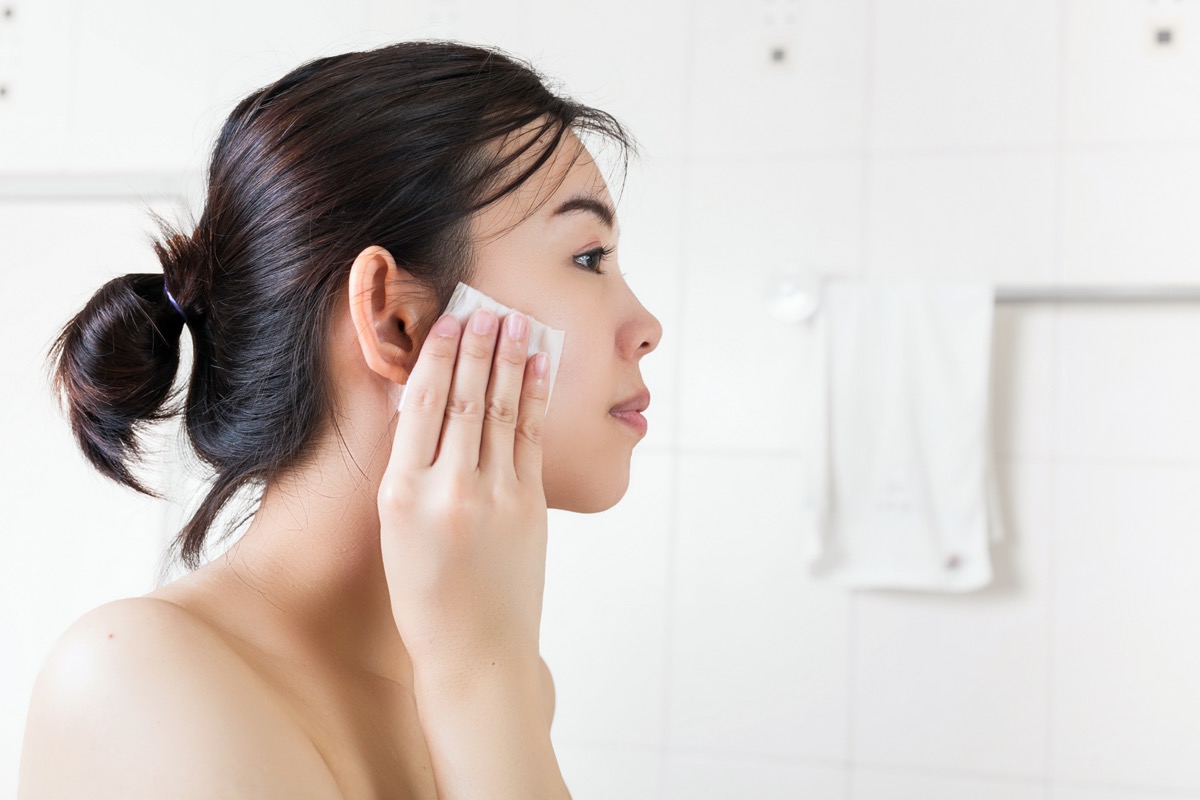
If that makeup wipe is gentle enough for your face, it should be gentle enough for your plumbing system, right? Well, not exactly.
Commercial and residential plumber Ryan Thompson, founder of Plumbing Informer, says that, like other wipes, some makeup wipes may claim to be flushable, but “unless they are built to dissolve in the water, it’s not true.” And to avoid more costly errors, check out these 50 Ways You’re Ruining Your Home Without Realizing It.
9
Cat litter
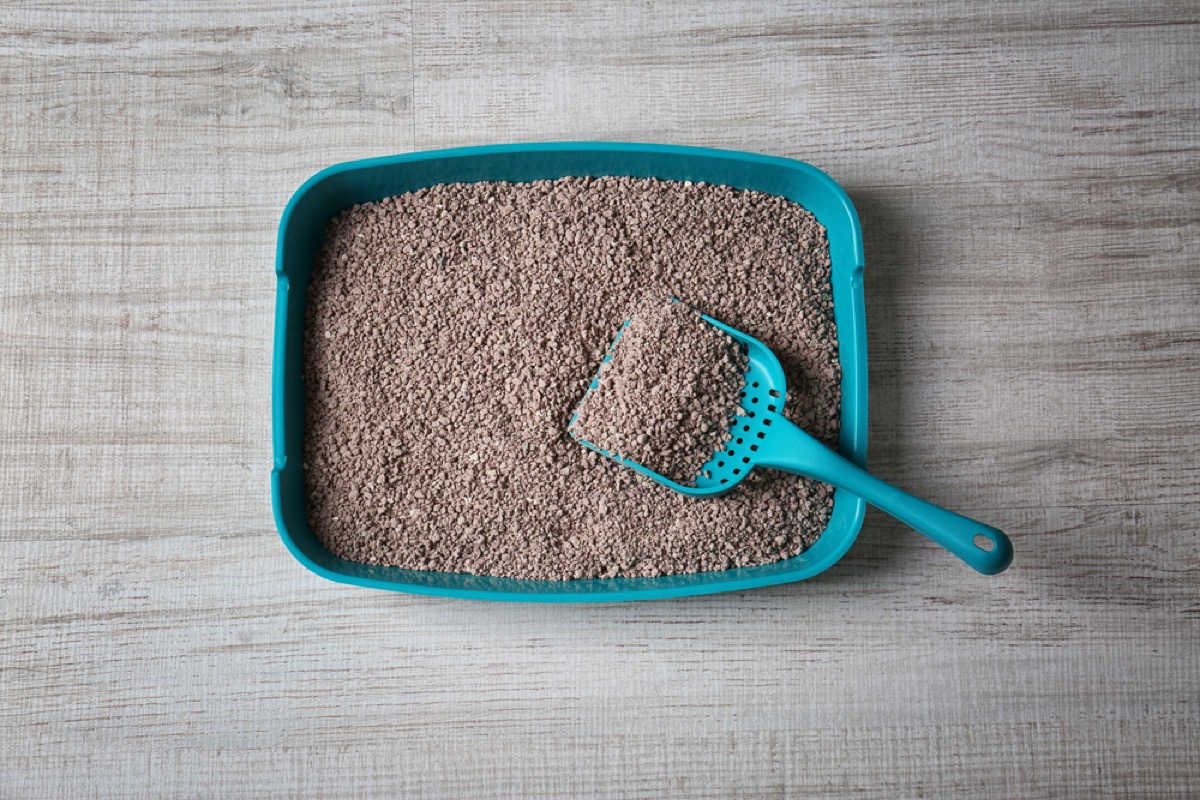
If you’re flushing the contents of your cat’s litter box, don’t be surprised when you find yourself with a major plumbing repair on your hands. “Plumbing systems are specifically designed to deal with human waste only,” says Thompson. “Cat litter is much more solid, which can lead to clogging.”
Thompson also notes that cat waste can contain parasites that aren’t readily filtered by the average wastewater treatment system.
10
Chemical drain cleaners
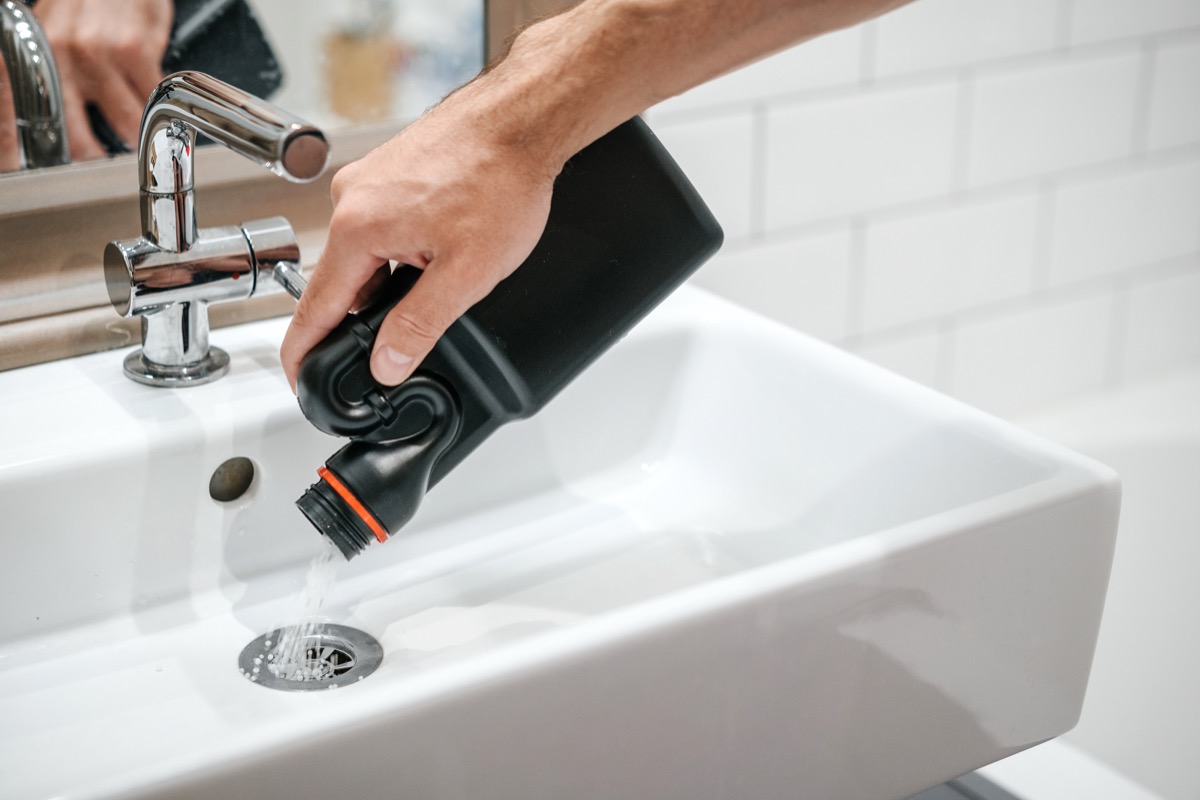
That drain cleaner you’ve been using to unclog your sink and shower has no place being poured down your toilet. “In your endeavor to prevent clogs with harsh [chemicals], things can get even worse—shallow blockages can go deeper into the plumbing system,” explains Smith.
And to keep your family safe from harsh chemicals, check out these 15 Cleaning Products You Should Keep Far from Your Kids.
11
Oil-based beauty products
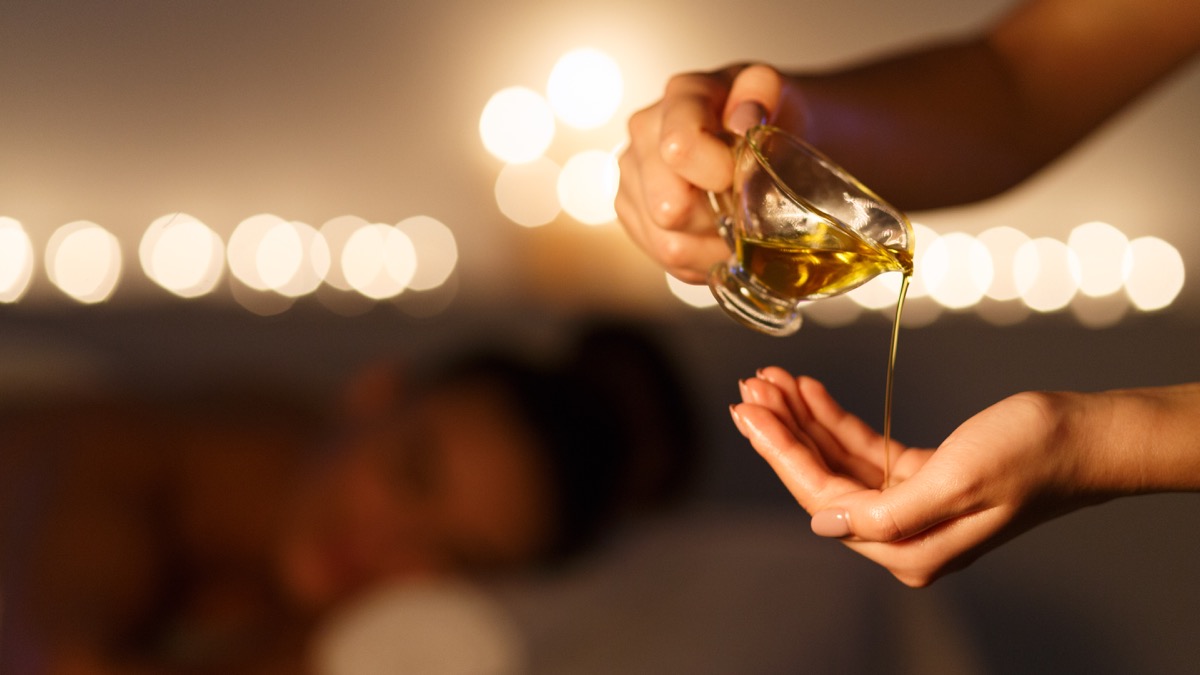
Ditching that hair or body oil that didn’t quite suit you? You’re going to want to look elsewhere than your toilet to dispose of it.
Even a single instance of flushing oil “may get you in the unpleasant situation of a clogged toilet,” says Smith, who explains that “they often solidify as they cool and build up in your pipes.”
12
Dental floss
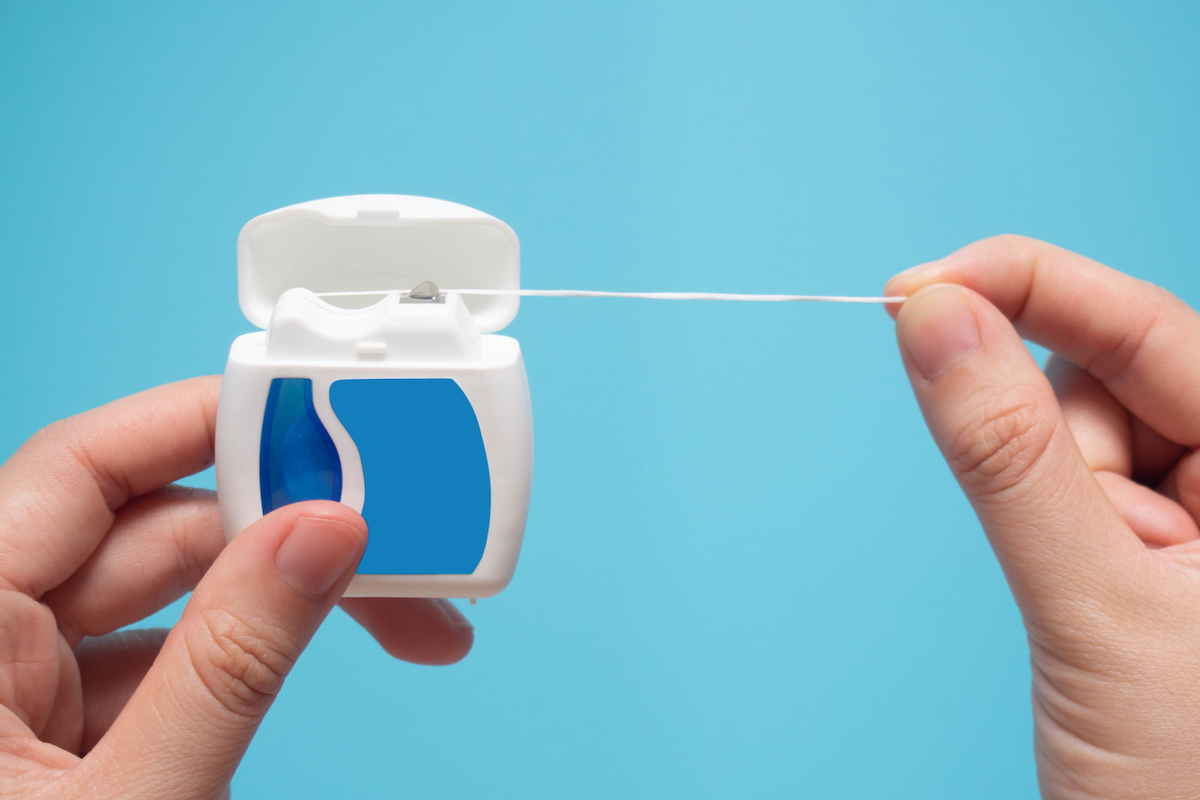
It may get things unstuck from your teeth, but make no mistake: Dental floss can get permanently stuck in your plumbing.
“It’s not biodegradable—and most commonly made of Teflon or Rayon—so it wraps around other non-biodegradable products to clog a system,” explains master plumber Joe Wood, founder of Boston Standard Company.
13
Bandages
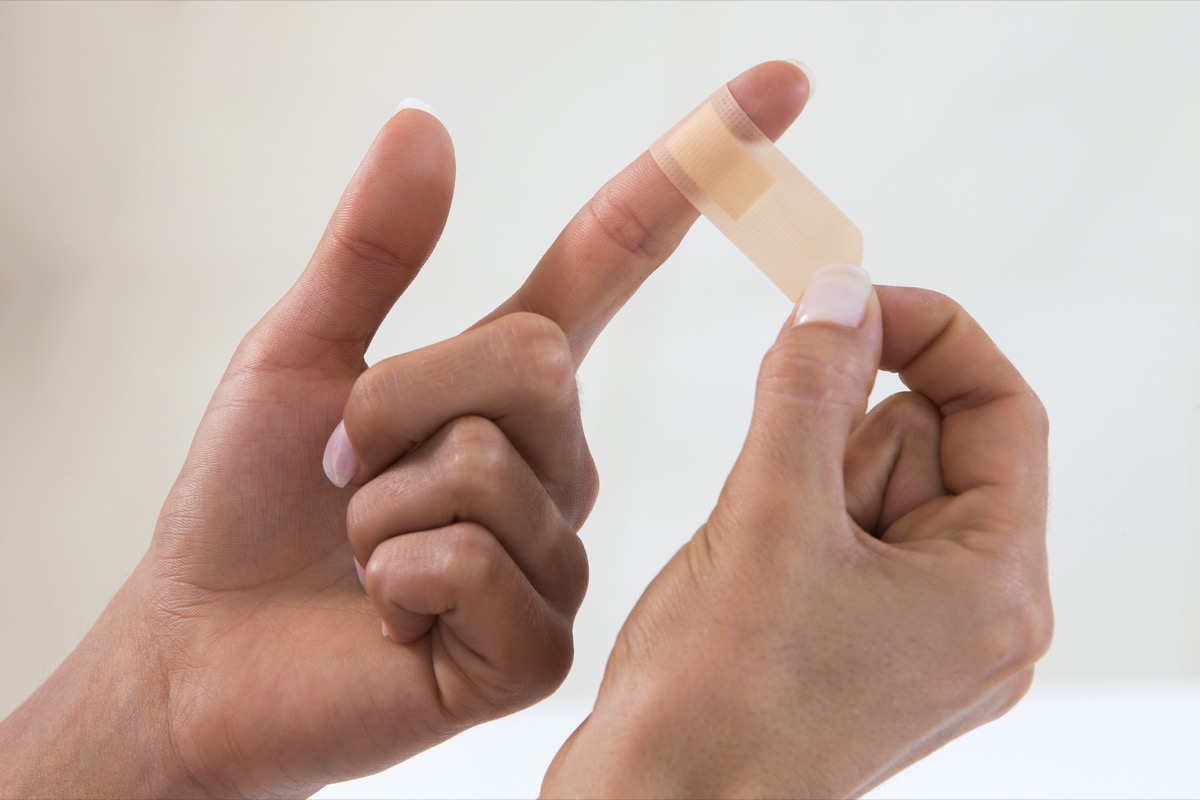
If you’re done with that bandage, make sure you’re putting it in the trash, not the toilet. According to Wood, like floss, your average bandage is a “non-biodegradable product that will bind to other non-dispersible items and cause problems.”
14
Small objects
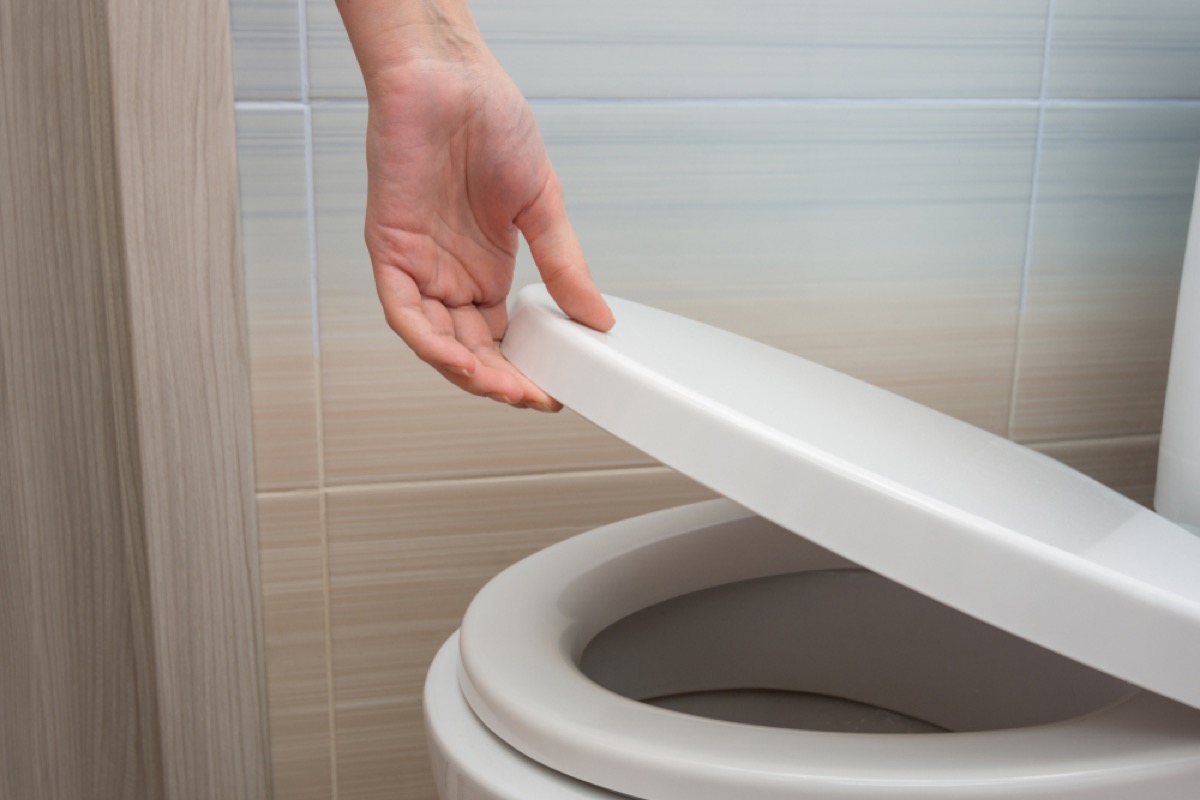
Unpleasant though the thought may be, if you accidentally drop something small and expendable into your toilet, the best move is to fish it out.
“All these small objects—shampoo caps, food waste, razor blades, kid toys, hair clips, and so on—can spell a mountain of troubles to your toilet drain,” says Smith, who notes that these items can become trapped and cause your toilet to overflow.
15
Paint
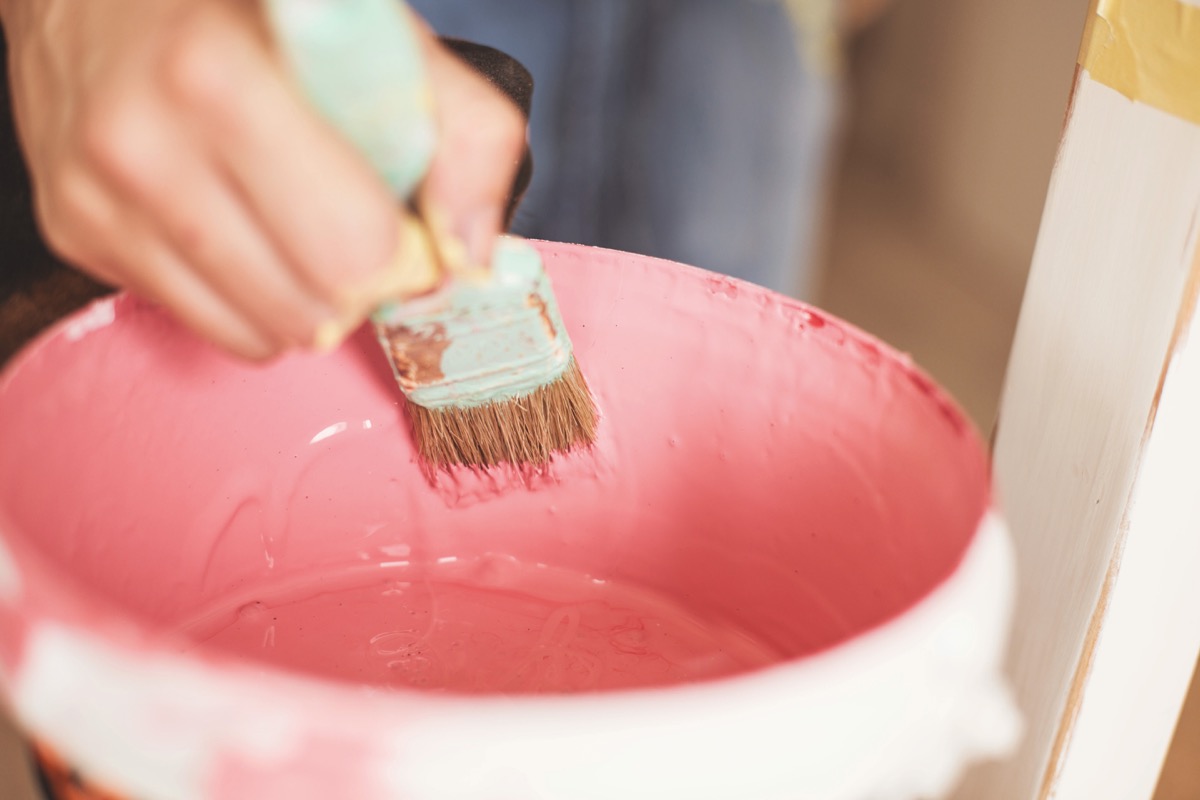
Have some extra paint left over from a project around the house? Whatever you do, don’t pour it into your toilet for disposal.
“Paint contains certain chemicals, like biocides and cadmium, that can create mold growth and also damage the environment,” Thompson said. And if you want to keep your home in tip-top shake, avoid these 23 Common Cleaning Mistakes That Experts Say Actually Ruin Your Home.